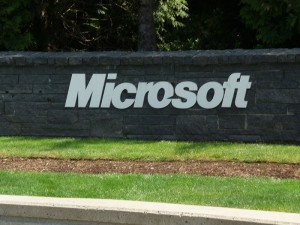 Microsoft has stopped producing and distributing anti-malware signatures for its Security Essentials software installed on aged Windows XP PCs.
Microsoft has stopped producing and distributing anti-malware signatures for its Security Essentials software installed on aged Windows XP PCs.
The July 14 deadline was announced a year and a half ago, when Microsoft back tracked from earlier decisions and said it would extend a hand to Windows XP users.
“To help organizations complete their migrations, Microsoft will continue to provide updates to our anti-malware signatures and engine for Windows XP users through July 14, 2015,” the company’s Malware Protection Center team said in January 2014.
Microsoft stopped downloads of Security Essentials itself — the software, not the antivirus signatures, or “fingerprints” — in April 2014, when it halted patches to the 2001 OS. Security Essentials is still available for Windows Vista and Windows 7 machines; in Windows 8 and 8.1, as well as Windows 10, Microsoft replaced Essentials with Windows Defender.
Corporations that still run Windows XP and have been trying to make it more secure using Microsoft’s enterprise-grade anti-malware software are out of luck on multiple fronts. Windows XP signatures for these products have been halted, too: The discontinued Forefront Client Security and Forefront Endpoint Protection, as well as the rebranded malware sniffer, System Center Endpoint Protection.
Microsoft also bagged the Malicious Software Removal Tool (MSRT) for Windows XP on Tuesday. MSRT, distributed through Microsoft’s Windows Update service and the business-grade Windows Server Update Service (WSUS) each month, eradicates select families of malware from machines. Unlike antivirus tools, it does not block malware from reaching the PC, but works as a janitor cleaning up malware’s mess. When Microsoft set the drop-dead for Security Essentials’ signatures and MSRT, it may have hoped that Windows XP would have vanished by now: That hasn’t happened.
In June, Windows XP still powered approximately 13% of all Windows personal computers worldwide, said analytics vendor Net Applications earlier this month. The 13% represented nearly 200 million systems.
But although Microsoft’s called it quits with XP, third-party antivirus vendors have not. According to Andreas Marx, CEO of AV-Test, a German company that regularly evaluates antivirus products, most security firms will support Windows XP with software and signatures until at least January 2016. Marx has published a list of antivirus vendors’ anticipated end-of-support dates for Windows XP.
For example, Trend Micro will support XP until Jan. 30, 2017 and Kaspersky until 2018. Symantec has yet to declare an end date. Meanwhile, Bitdefender today said it would support Windows XP until January 2016.









